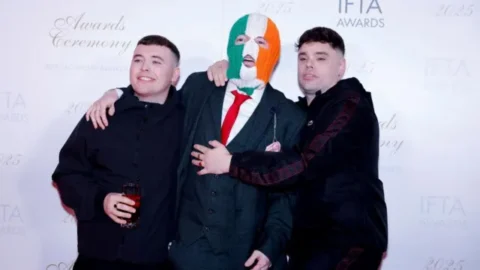A Federal High Court in Lagos has dismissed a fundamental rights suit filed by popular crossdresser Idris Okuneye, better known as Bobrisky, against the Economic and Financial Crimes Commission (EFCC).
The lawsuit sought legal redress for alleged violations of Bobrisky’s fundamental human rights.
The controversial figure had requested significant compensation for damages, including ₦200 million for alleged psychotic trauma and ₦1 billion from the National Assembly, claiming infringement on his right to a fair hearing.
Bobrisky had also petitioned the court to prevent the EFCC and the National Assembly from engaging in further actions against him, such as harassment, detention, or declaring him wanted.
This legal action came amidst allegations of money laundering and subsequent claims that Bobrisky paid a hefty sum to the EFCC to have the charges dropped.
These allegations stemmed from leaked audio recordings shared online by social media influencer Martins Otse, further fueling the controversy surrounding the case.
During the court proceedings, Justice Alexander Owoeye ruled against Bobrisky, stating that the claims of rights violations were not substantiated by credible evidence.
The judge emphasized that the applicant had failed to provide convincing proof to support the declaratory and injunctive reliefs sought.
The court also concluded that the accusations of fundamental rights infringements against the EFCC and the National Assembly lacked merit and legal grounding.
The ruling was accompanied by a statement from Dele Oyewale, the EFCC’s spokesperson, who confirmed the dismissal of Bobrisky’s case.
Oyewale reiterated the court’s stance, highlighting the insufficiency of evidence presented by Bobrisky to justify his claims.
The case drew significant public attention due to its high-profile nature and the polarizing figure of Bobrisky in Nigerian society.
Justice Owoeye elaborated that the evidence submitted by Bobrisky’s legal team failed to establish any wrongdoing on the part of the EFCC or the National Assembly.
The court also rejected Bobrisky’s plea for financial compensation, determining that there was no legal basis for awarding damages in the case. This decision further solidified the stance that the claims against the respondents were baseless.
The lawsuit, which initially sparked widespread debates about the treatment of public figures and fundamental rights in Nigeria, has now concluded with a clear judgment against Bobrisky.
Legal analysts noted that the case underscored the importance of presenting substantial evidence when seeking reliefs in court, especially in high-stakes matters involving government institutions.
With the dismissal of the suit, the EFCC emerged unscathed from allegations of wrongdoing, while Bobrisky’s legal pursuit for damages ended unsuccessfully.
The court’s decision serves as a reminder of the stringent requirements for proving violations of fundamental rights in Nigerian courts.





